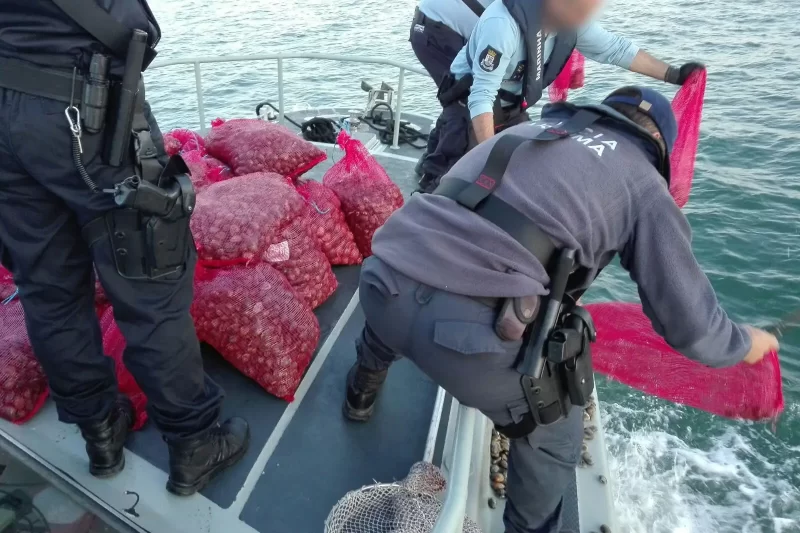30 Tonnes of Illegally-fished, Contaminated Molluscs Seized Ahead of Christmas
Law enforcement authorities from France, Portugal and Spain, supported by Europol, have arrested 62 members of multiple organised criminal groups involved in the illegal fishing of contaminated molluscs in Portugal and Spain.
The 17 action days also resulted in the seizure of 30 tonnes of molluscs and 6 tonnes of glass eels worth up to EUR 10 million on the seafood market. Six of the suspects are considered High Value Targets by authorities.
Molluscs linked to risk of hepatitis
The criminal gangs mainly fished Japanese clams, which are enjoyed by locals and tourists in coastal areas, including during the festive season. The gangs falsified the contaminated seafood documentation to present it as suitable for human consumption. This could have developed into a major health issue, as the continuous consumption of contaminated molluscs puts people at risk of serious diseases such as hepatitis.
The investigation led to the uncovering of organised criminal groups involved in trafficking either clams or glass eels, depending on the season of the year, in France, Portugal and Spain. This led to the dismantling of a major criminal network involved in the illegal poaching, gathering and smuggling of glass eels.
Criminal networks operating internationally
One kilo of these molluscs can be sold on the seafood market for up to EUR 25. Criminal networks exploited fishers, originating from Asian countries, paying them just EUR 1 per kilo of molluscs they fished. The fishers would fish illegally in Portugal, sending the molluscs to Spain and on to the criminal networks.
First-ever connection between human trafficking and environmental crime proved in the EU
The contrast between the price of the molluscs on the market and the fishers’ earnings led authorities to confirm the link between environmental crime and trafficking in human beings for labour exploitation for the first time ever in the European Union.
Criminal trend detected by Europol
Europol experts from the Environmental Crime Unit detected the criminal trend and provided their expertise to the Member States involved. Europol supported operational meetings, coordinated the action days and provided national authorities with financial support.
During the action days, Europol’s experts were also deployed on the ground in Portugal, Spain and France. The outcomes of the operational analysis led to the identification of new high-value targets and triggered new investigations.
Authorities involved
The following law enforcement authorities were involved in the operation:
- France: French Gendarmerie (Gendarmerie Nationale: Commandement pour l’environnement et la santé, CESAN; Office central de lutte contre les atteintes à l’environnement et à la santé publique, OCLAESP) French Office for Biodiversity and French Customs;
- Portugal: Nature and Environmental Service Protection of the Portuguese National Republican Guard (SEPNA/GNR), and Food and Economic Safety Authority (Autoridade de Segurança Alimentar e Económica, ASAE);
- Spain: Spanish Civil Guard (Guardia Civil, SEPRONA).













